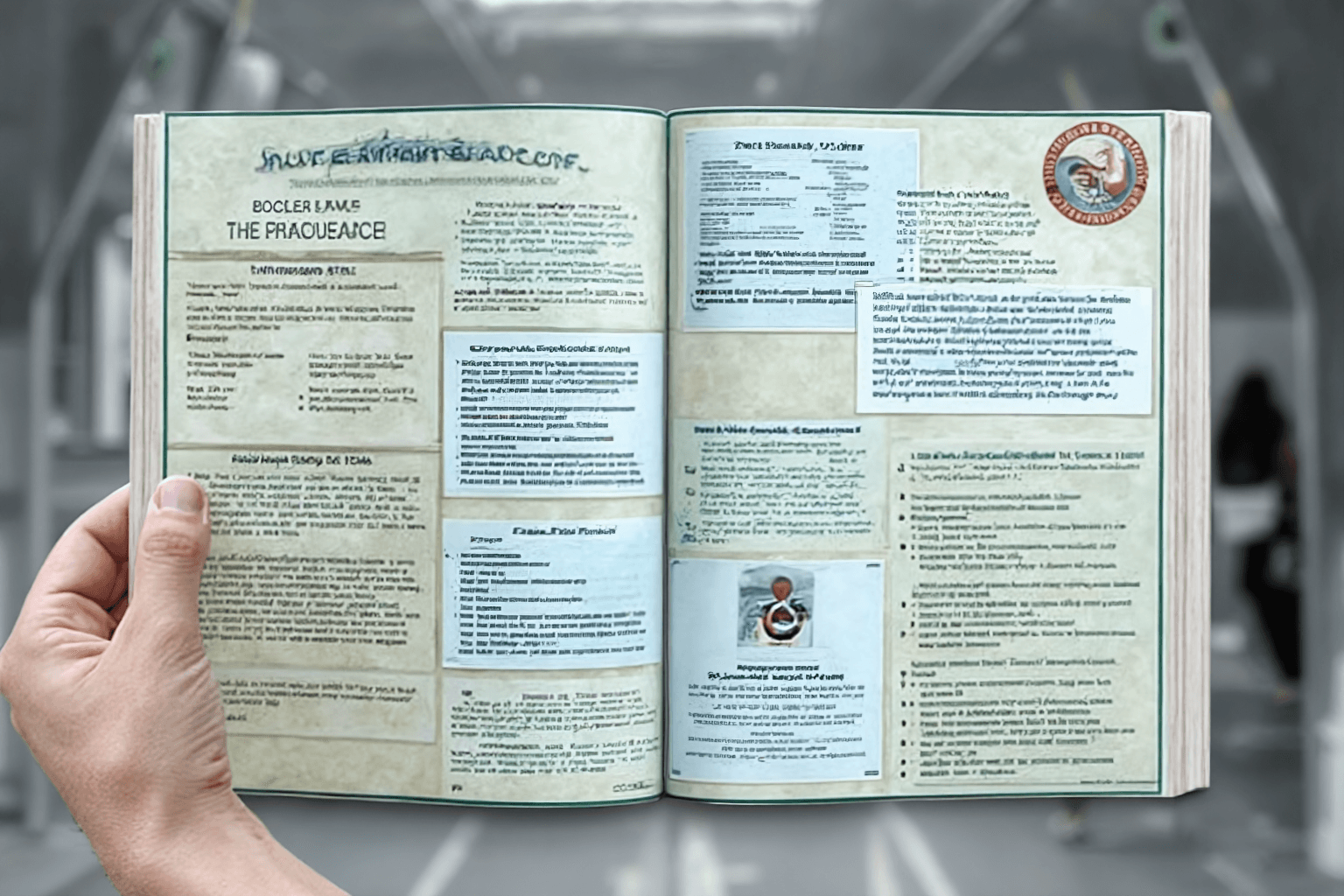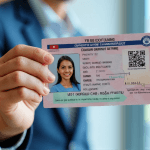Navigating Police Clearance: Top Reasons for Rejection and How to Ensure Approval
Introduction: Understanding the Police Clearance Process
Applying for a police clearance certificate can often feel like navigating a complex maze, especially when the specter of a police clearance rejection looms large. This document, often required for immigration, employment, or various legal processes, serves as an official verification of an individual’s criminal record, or lack thereof. The application process itself can be intricate, involving detailed forms, specific documentation, and adherence to strict guidelines, making it essential to approach with meticulous care. This guide serves as a comprehensive roadmap, designed to demystify the process and provide practical, actionable advice to significantly increase your chances of a successful application, minimizing the risk of application denial. Understanding the common pitfalls and proactive steps will empower you to navigate this process with confidence. Obtaining a police certificate is not merely a formality, it is a crucial step in many life-altering situations. Therefore, a thorough understanding of the application process and potential hurdles is paramount.
For many, the police certificate is a gateway to new opportunities, whether it’s securing a job in a new field, obtaining a visa for international travel, or fulfilling legal obligations. The process, while seemingly straightforward, can be fraught with challenges, particularly if there are discrepancies or omissions in the provided information. For instance, individuals with past legal issues may feel apprehensive, not knowing how to properly address those matters in their application. This is where the importance of honest disclosure and meticulous preparation comes into play. The repercussions of a police clearance rejection can be significant, causing delays in immigration timelines, loss of job opportunities, or even legal complications. Therefore, understanding the nuances of the application process is not just helpful, it’s often essential.
Navigating the requirements for a criminal record check can vary significantly depending on the jurisdiction, adding another layer of complexity to the process. Some countries or states may require specific forms, while others might mandate fingerprinting or interviews. For example, an individual applying for a visa to Canada might face different requirements than someone applying for a job in the United States. This is why it’s crucial to research the specific requirements of the issuing authority and ensure that all necessary steps are taken. Furthermore, the terminology used can also differ, with terms like police certificate, background check, and criminal record check often used interchangeably, adding to the confusion. Therefore, it is essential to clarify the precise document required and the specific criteria for acceptance.
It’s also important to understand that a police clearance is not a static document. Its validity period can vary, and it may need to be renewed periodically depending on the purpose for which it is required. For example, some employers may require a recent police certificate, while immigration authorities may accept one that is a few months old. Keeping track of these validity periods is crucial to avoid delays and ensure that your documentation is always up to date. Moreover, the process of obtaining a police certificate may involve fees, and these fees can also vary depending on the issuing authority. Therefore, it’s advisable to check the cost beforehand and budget accordingly.
Finally, remember that a thorough understanding of the application process is your first line of defense against a police clearance rejection. By being proactive, meticulous, and honest, you can significantly increase your chances of a successful outcome. This guide is designed to provide you with the necessary tools and knowledge to navigate this process effectively, ensuring that your application is not only complete but also accurate and truthful. This will help you avoid common pitfalls and pave the way for a smooth and successful experience in obtaining your police certificate.
Common Reasons for Police Clearance Rejection
A primary reason for police clearance rejection is incomplete or inaccurate documentation. This seemingly simple oversight can have significant repercussions, delaying applications for immigration, employment, or other crucial processes. Ensure you provide all required documents, such as valid identification, proof of address, and completed application forms. Meticulously double-check all information for accuracy and consistency, paying close attention to dates, names, and addresses. For immigration purposes, ensure your documents meet the specific requirements of the target country, as these can vary significantly. In employment contexts, background checks are often time-sensitive, so any delays due to rejected applications can impact job opportunities. A common mistake is submitting expired identification documents. Always verify the validity of your passport, driver’s license, or other forms of ID before submitting them. Using outdated proof of address, such as utility bills older than three months, can also lead to rejection. Provide current documentation to avoid unnecessary delays. When completing application forms, ensure all sections are filled out accurately and legibly. If a section is not applicable to your situation, mark it as “N/A” rather than leaving it blank. Incomplete forms are often automatically rejected, requiring resubmission and further delays. For legal purposes, such as court proceedings or professional licensing, providing accurate and complete documentation is paramount. Any discrepancies can raise concerns about credibility and hinder your case. If you are unsure about the required documents or the accuracy of your information, consulting with legal counsel or immigration specialists can be invaluable. They can provide guidance on specific requirements and help ensure your application meets the necessary standards. Remember, a thorough and accurate application is the first step towards a successful police clearance process. Addressing potential issues proactively can save you time, stress, and potential setbacks in your immigration, employment, or legal endeavors. A seemingly minor error, like an incorrect date or missing signature, can have significant consequences, leading to application denial and potentially impacting future opportunities. Therefore, meticulous attention to detail is crucial throughout the application process. Reviewing the checklist of required documents provided by the issuing authority is an essential step to ensure completeness. Contacting the relevant authority directly can also clarify any doubts or specific requirements, minimizing the risk of rejection. Moreover, maintaining copies of all submitted documents is highly recommended. This allows for easy resubmission or clarification if needed, facilitating a smoother and more efficient process. By proactively addressing potential issues and ensuring the accuracy and completeness of your documentation, you significantly increase the likelihood of a successful police clearance application, paving the way for a smoother transition in your immigration, employment, or legal pursuits.
Ensuring Accuracy and Completeness of Information
Before submitting your application for a police certificate, meticulous verification of all information is paramount. This includes not only confirming the accuracy of your personal details, such as your full legal name, date of birth, and any previous names used, but also ensuring that your addresses, both current and past, are precisely documented. Discrepancies, even minor ones, between the information you provide and official records can easily trigger a police clearance rejection. For example, if you’ve recently moved, make certain that the address on your application matches the address on your government-issued identification and any other supporting documents. Inconsistencies in employment history are another common pitfall. Carefully review your work history, ensuring that dates of employment, job titles, and employer details align with your records and any previous background checks you may have undergone. Any unexplained gaps or conflicting information can lead to delays or even an application denial, especially when applying for immigration or certain types of employment. These details are not just formalities; they are critical components of the criminal record check process. Furthermore, it is essential to be consistent in how you present your information across all documents. For example, if you have used a shortened version of your name on some documents, ensure that you provide the full legal name as well, and make it clear that the shortened version is a derivative of your legal name. This avoids any confusion or suspicion that could arise from seemingly inconsistent data. Even a seemingly insignificant difference in how your name is written or an address is formatted can be cause for concern during the verification process, leading to a prolonged investigation or outright police clearance rejection. In the context of immigration, where background checks are often very thorough, such errors can have significant consequences, potentially delaying or even jeopardizing your application. The thoroughness of your preparation directly impacts the efficiency and success of your application. Therefore, take the time to review, double-check, and if possible, have someone else verify your information before submitting your application. This simple step can save you considerable time, money, and frustration by preventing easily avoidable mistakes. If you are unsure about the correct information to include, it is always best to seek clarification from the issuing authority or consult with a legal professional. This proactive approach demonstrates your commitment to accuracy and increases the chances of a smooth application process and approval of your police certificate.
Addressing Past Legal Issues
Addressing past legal issues in your police clearance application requires careful consideration and complete honesty. Non-disclosure or misrepresentation of past offenses, even minor ones, can lead to immediate rejection and may jeopardize future applications. This is especially critical for immigration and employment purposes where background checks are rigorous. For instance, if you are applying for a visa or a job that requires a security clearance, omitting a past conviction could have serious consequences. It is crucial to understand that the police clearance process is designed to assess an individual’s trustworthiness and suitability, and withholding information undermines this process. Providing accurate and complete details about past legal issues demonstrates transparency and allows the reviewing authorities to make an informed decision. If you have any questions or concerns about disclosing past legal issues, consulting with a legal professional specialized in immigration or employment law is highly recommended. They can provide tailored advice based on your specific situation and the requirements of the application process. Remember, different countries and even different employers may have varying criteria for evaluating past offenses. A lawyer can help you navigate these complexities and ensure your application is presented in the most favorable light. For example, a lawyer can help you gather supporting documentation, such as court records and rehabilitation certificates, to demonstrate your commitment to positive change. They can also help you explain the circumstances surrounding past offenses and highlight any mitigating factors. Furthermore, understanding the specific requirements of the police certificate application process is crucial. Some applications may require details of all offenses, regardless of their severity or how long ago they occurred, while others may only require disclosure of convictions within a specific timeframe. Carefully review the application instructions and seek clarification if needed. This is particularly important for international travel or employment, where the rules and regulations can differ significantly. By being upfront about your past and providing all requested information, you demonstrate respect for the process and increase your chances of a positive outcome. Finally, if your police clearance application is rejected due to past legal issues, understand that you may have options for appeal. A lawyer can help you navigate the appeals process and advocate on your behalf. They can also help you understand the reasons for the rejection and identify any steps you can take to improve your chances of success in the future. Remember, a past legal issue does not necessarily preclude you from obtaining a police clearance. By being proactive, honest, and seeking professional guidance when needed, you can successfully navigate this process.
Conclusion: Your Path to a Successful Application
By diligently following the steps outlined in this guide, you significantly improve your prospects of obtaining police clearance. Thorough preparation and unwavering honesty are paramount throughout the application process. This includes meticulously reviewing all required documents, ensuring the accuracy of personal information, and transparently addressing any past legal issues. For those seeking employment, especially in sensitive sectors like finance or government, a clean police clearance is often a non-negotiable prerequisite. Understanding the specific requirements and potential challenges beforehand can save you valuable time and prevent unnecessary setbacks in your career progression. In immigration contexts, a police clearance certificate is frequently a mandatory document for visa applications and permanent residency. Each country has its own unique set of regulations and acceptance criteria, so meticulous research and adherence to specific guidelines are crucial for a successful outcome. If you are applying for immigration purposes, consult with an immigration lawyer or advisor to ensure you meet all necessary requirements and address any potential complications related to your background. Addressing past legal issues proactively is essential for a successful police clearance application. While a criminal record doesn’t automatically disqualify you, it’s vital to provide complete and accurate details. Omitting or misrepresenting information can lead to immediate rejection and may have serious legal consequences. Seek legal counsel to understand the implications of your specific situation and how to present your case effectively. If your application is rejected, don’t be discouraged. Rejection doesn’t necessarily mean the end of the road. Carefully review the reasons for denial provided by the issuing authority. Common reasons for police clearance rejection include incomplete documentation, discrepancies in information, or failure to disclose past legal issues. Understanding the specific reasons for your rejection will help you address them effectively in a subsequent application or through the appeals process. Most jurisdictions have a defined appeals process, which may involve submitting additional documentation, providing further explanations, or requesting a formal review of the decision. Consult the guidelines provided by the issuing authority or seek legal assistance to navigate the appeals process successfully. Remember, obtaining a police clearance certificate is often a critical step in various life transitions, from employment and immigration to international travel and volunteer work. By understanding the process, preparing thoroughly, and acting with integrity, you can navigate potential challenges and ultimately secure the necessary clearance for your endeavors.


